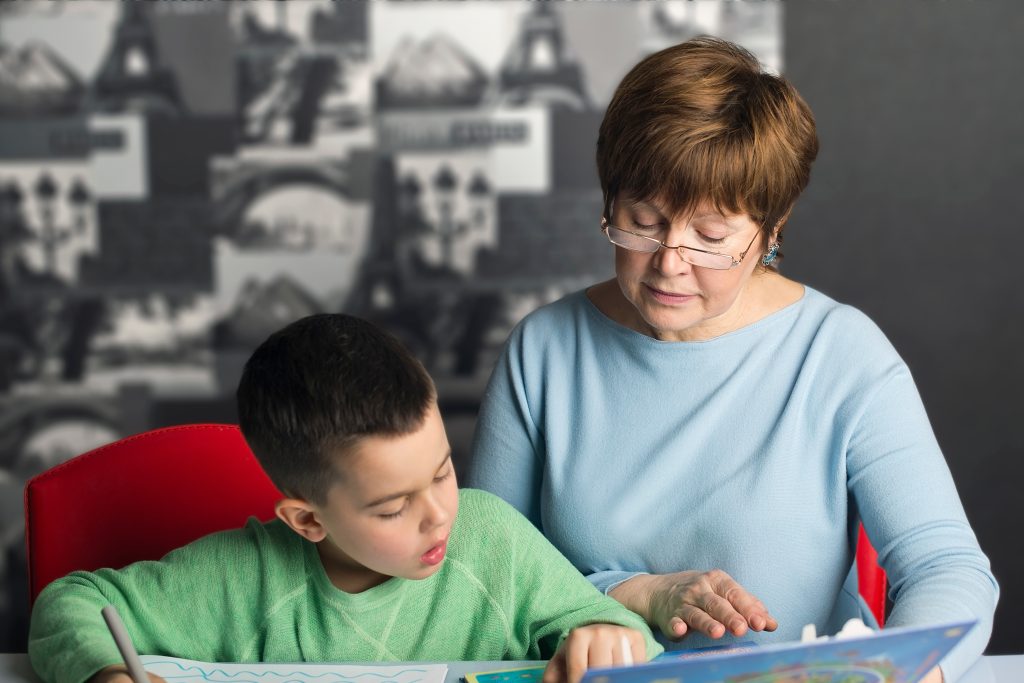
Most people know that fostering means providing a safe, stable, and nurturing home for vulnerable children until they can return to their birth families, move to a more permanent home (through adoption or long-term foster care), or leave care as adults.
But what does this really mean? From providing a safe haven to helping children heal, join us as we take a closer look at the role of a foster parent, so you know what to expect when you start your fostering journey.
What do foster parents really do?
A common misconception about fostering is that it is solely about providing children with a roof over their head. When, in fact, there is a lot more to it than that.
Every child needs a foundation of emotional safety, love and understanding so they can look to the future with hope. When you become a foster parent, your responsibilities will help provide this foundation. So, let’s break these down:
Not just a house – a home
When you think of your childhood home, you may have memories of chatting over breakfast, laughing as you played silly games and feeling carefree. But for children who enter foster care, home has often meant something very different for them. Instead, it may have been a place where they felt scared, isolated, and confused.
Every child deserves a safe place to call home. Not just a place where their physical needs are met, but where they feel loved, encouraged, and understood. A place where they can truly be themselves and know that, no matter what, someone will always be there for them.
That’s why, as a foster parent, part of your role is helping children in your care feel like your home is theirs. It’s about doing the little things, like helping them decorate their bedroom, taking a family photograph and including them in the exciting and mundane aspects of family life, so they feel like they belong.
Supporting their healing journey
Many children in foster care are living with the effects of trauma caused by their early life experiences. Trauma can impact a child’s entire well-being, including their behaviour, emotions and the way they see the world.
That’s why, as a foster parent, you’ll support the healing of children you foster through trauma-informed care. This means:
- Looking at each child’s behaviour as a form of communication to understand what’s really going on, then helping them develop healthy coping strategies.
- Helping children understand their emotions and find ways to manage them through co-regulation, hobbies, or interests until they can regulate them on their own.
- Building a trusting relationship with children that helps them feel both physically and emotionally safe.
- Consistently showing up for children in your care and doing the things you say you will.
- Building their self-confidence and celebrating their achievements.
- Helping them understand their identity and see their value just as they are.
Helping them succeed at school
To build brighter futures, children need the opportunity to succeed at school. That’s why one of your responsibilities as a foster parent is helping children in your care get the most out of their education.
Whether it’s attending Personal Education Plan (PEP) meetings, working with our education specialists, or finding creative ways to help a child with their homework, you’ll give children the chance to thrive at school.
Education opens doors and helps children in care achieve the best possible outcomes.

Being their voice
It’s an adult’s world, which means every child needs a trusting grown-up to be their voice until they are old enough and have the appropriate level of understanding to advocate for themselves.
When you foster a child, over time, you become the person who knows them best, especially if you foster them long term. As a result, you’ll begin to recognise if a child is struggling in a particular area of their life and needs a little extra support.
For example, if your child has a problem at school, you’ll advocate for them to ensure they receive the right support. And if they have a health concern, you’ll ensure they receive the best possible medical care. You’ll be their voice, fighting their corner.
Nurturing family connections
Our families connect us to who we are, and when children live in foster care, if it’s safe and in the best interest of the child, they’ll have time to see their parents, siblings, and extended family.
As a foster parent, you’ll help nurture each child’s family connections. This might be as simple as listening to them talk about their family or helping them make a card to give to a family member on their birthday or at Christmas. Other times, this might mean being a shoulder to cry on if a family time meeting hasn’t gone the way they’d hoped.
By supporting family bonds, you’ll help children feel close to the people they love and hold on to an essential part of who they are.
Building special memories
We want children who’ve spent time in care to look back on this chapter of their lives and see it in a way many of us remember our own childhood – feeling safe, loved, and free to be themselves.
How do you do this as a foster parent? Whether it be going to the park on a Saturday afternoon, exploring nature together, or taking them on holiday, you’ll help children in your care build beautiful memories that last a lifetime.
Teaching them life skills
Young people in care need a little help to learn how to manage life after care. As a foster parent, you’ll teach children practical and emotional life skills that will support them to live independently.
From budgeting and cooking for themselves to building resilience and managing conflict, with your guidance, young people can go out into the world with the tools they need not just to survive but to thrive.
How do foster parents manage their role?
When you foster with Clifford House, we’ll make sure you have the guidance, support and training you need to manage your role and responsibilities.
From regular supervision and our out-of-hours helpline to foster parent support groups and a generous fostering allowance, our support for foster parents goes above and beyond – you’ll never feel alone on your fostering journey.
You’ll also enrol in our bespoke trauma-informed training programme, which will help you understand the impact of trauma and the steps you can take as a foster parent to support children on their healing journey.
Whatever you need, whenever you need it, we are here for you 24/7.
Want to make a real difference? Enquire today.
If you’re interested in fostering and would like to learn more about the role of a foster parent, enquire today! Call us on 0800 369 8515 or complete our online form, and a member of our knowledgeable team will be in touch.
